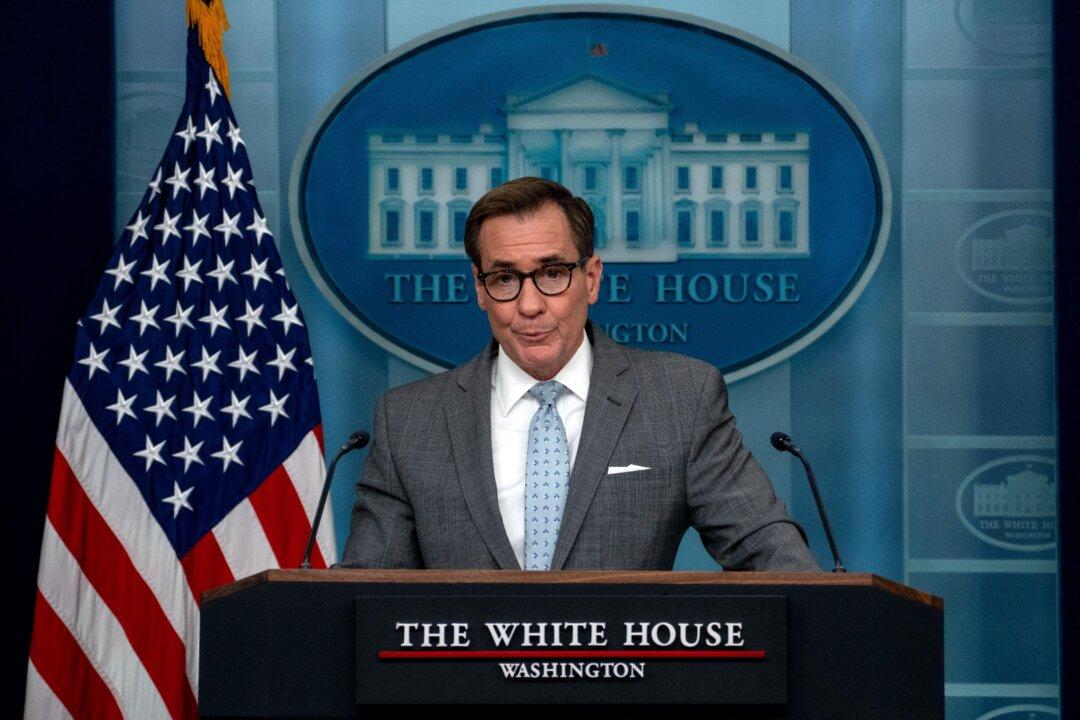White House national security communications adviser John Kirby told members of the press that the proposal submitted by Speaker of the House Mike Johnson (R-La.) to provide financial assistance to Israel could work, but a deeper look was still needed before passing final judgment.
“It does appear, at first blush, that the speaker’s proposals will, in fact, help us get aid to Ukraine, aid to Israel, and needed resources to the Indo-Pacific for a wide range of contingencies there. At first blush, it looks like that. We just want to get more details,” he said during a gaggle on Air Force One on April 16.





